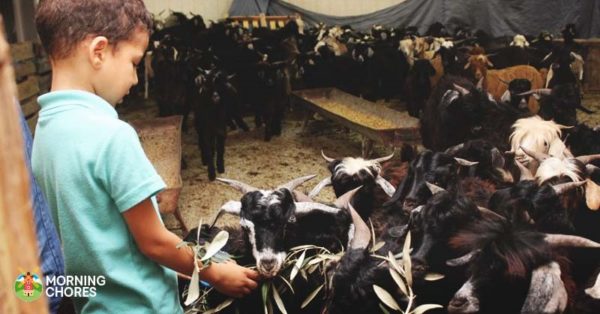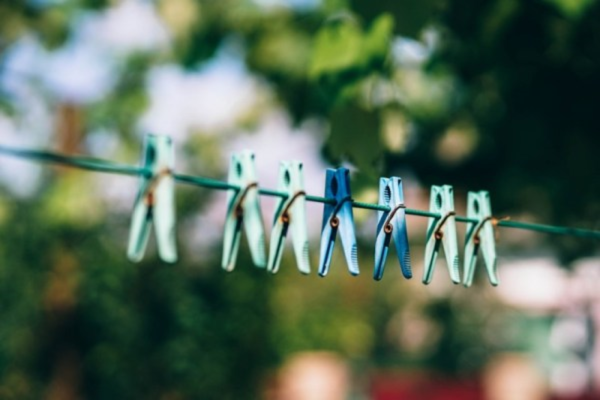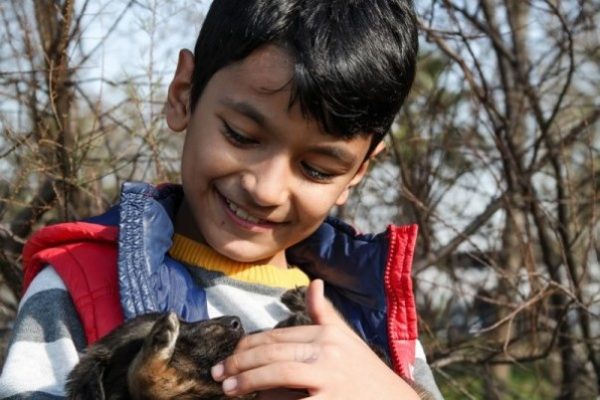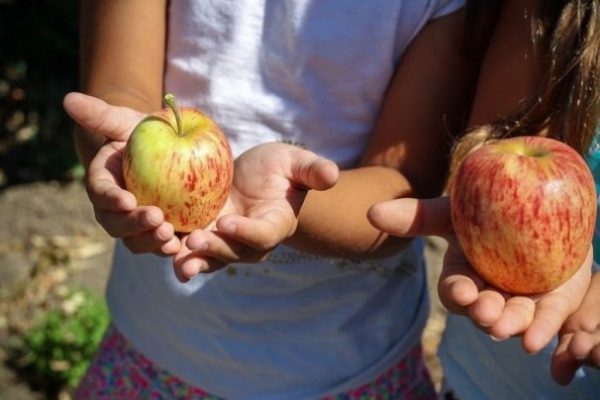10 Benefits of Having Little Ones Grow Up on the Farm as Farm Kids

In a world where children are bused from one event to the next and must keep up with responsibilities that would make an adult exhausted, maybe it is time that we took a step back and considered the benefits of raising children slowly and in a manner that used to be more common. That is, raising them on the farm as farm kids.
Last updated November 14, 2019
Here are some benefits of raising children on the farm.
The Benefits for Farm Kids
- They learn responsibility at an early age

Despite the way that most children behave, having chores is actually beneficial for them. Part of this is because they are made to feel as if they contribute to the household, which they do.
Starting them out young is a great idea and be sure not to be too critical as we want them to get it done (properly) but still feel as if they have helped, not hindered.
For many people, chores equal allowances. My philosophy is that some of the chores are contributions and the rest can be for a financial gain.
For example, our daughters have certain tasks they must complete. Once these tasks are complete, there is a bulletin board they can go to that shows them a task that would normally be mine or my husbands, which they can do in order to earn some money – anything between fifty cents and two dollars. They will not get the money if their everyday chores are not done though.
- Country Kids are Smarter

The thing I hate the most is when I tell teachers that my child is gifted. I cringe because I feel like every proud mother who brags about their children and the teacher rolls their eyes. I get it.
That being said, my child has never had less than a B and even those are rare. She has been in the Gifted Talented program since she was tested in third grade.
She, thankfully, has grown up with the best of both worlds. Several years of her education have been in rural and several have been in the city. I am grateful for both.
According to Quartz Magazine, cognitive abilities are at fifty-seven percent for kids who grew up in the country and fifty-two percent for kids that grow up in the city.
Personally, I think the smaller classroom sizes are a part of the reason.
- The Ability to Run

Like my daughter, I spent a portion of my childhood in town and part of my childhood in the country. While I lived in the country I was able to ride my bike down my street, across the “big road”, and finish out my ride about a mile down from my house at my friend’s house.
Often, we would walk in the creek alongside her house. When not there, we had friends that were the other way on the road. I can remember so many bike rides as a child, barefoot, finding unique places we had never been to before.
My girls would go see their friends when we lived in the neighborhood and I would walk with them. Even now, we have a big area that my daughters can ride their bikes on and I still go outside because I want to make sure they are safe.
We are looking to move and one of the benefits of having a larger space in the country means they could be out of sight and still on our property. So long as they had a phone I know we would both enjoy their freedom.
- Children in the Country are Healthier

I heard once that a household with no dust would make children more likely to be sick.
Farms can be clean but still hold pollen and allergens all over the place. Being exposed to this means that children are less likely to get it. This phenomenon is similar to getting different shots. The flu shot and the chicken pox vaccine simply put a little bit of the flu or chicken pox virus in your system and your body fights it off.
Another reason for being healthy includes the stress factor. Children who are less stressed are more likely to be healthy. Why do children that live in the country have less stress? A study by Environment and Behavior showed that kids with natural scenery have less stress than those who don’t. Even in an office environment, it has been proven that staff with nature-like wall-prints, were less stressed than wall-prints depicting cities.
I think it is a bit of a pile effect though… for example, kids who are near natural scenery also have access to farm fresh foods, which helps them. Or maybe their parents are at home more often so that makes them less stressed.
- They are surrounded by less media

This is one that I was a bit wary about. My youngest is easily influenced by the media. Part of the problem is that she watches a lot of YouTube. As I type this, I think I am going to limit her to one hour a day.
Other than that, my kids do not see billboards for our entire thirty-minute drive to and from school. Likewise, we don’t have a television – not even rabbit ears at the moment!
Because of that, we do not have to worry about them wanting items that are a bit senseless to have. Therefore, our money that is saved by not having cable or the extra items can go to family related events such as vacations and dance lessons.
Also, their lack of not wanting things as much punted to them via media channels, which means that they are allowed to just be kids and at ten and twelve that is still all they want!
- Having Animals can Help Children Cope

I write this one from first-hand experience and it wasn’t a child but a teenager that had the issue. She came from a rough home. Her mom treated her like crap growing up and she finally moved away when she was a junior in high school. I met her during her senior year. Every time she walked into my room, my heart would pound.
Then our floral design and math teacher brought in quails to hatch and raise. At first, her smile grew when she saw the quail hatching and then she became easier to be around in my class. Before I knew it, I had a totally different student that I am proud to say she was my first “rough” student because she taught me that sometimes it is small things that make all the difference.
Animals also teach children responsibility and that the show must go on. When they are sick, those animals still need to be taken care of. Even when a family member dies the animals still need them. Even days when they don’t feel like taking care of the animal, it doesn’t change the fact that the animal must still be taken care of.
- They Learn to Appreciate the Land

When we did live in the country I remember my mother having a garden. I remember growing my first plant from a McDonald’s happy meal kit around Earth Day. I have always felt a connection to the land and strive to be as sustainable as possible, I just didn’t recognize that passion until I was a bit older.
Witnessing and being around the soil, around the animals really helps a child to recognize what it takes to make our earth sustainable when they become adults. Even if they move to the city, I am betting they will be less wasteful and be more creative about how they look at their food and the product crazy world around them.
- They Get Dirty

I was in the bathtub getting cleaned up from a fun bike ride with a neighbor friend through the corn field where I had gotten myself and my brand new dress dirty. Muddy dirty. My mother was furious. I got grounded.
In the same respect though this is a child being a child. They are going to be more coordinated because they walk on uneven surfaces. A child in the city might get dirty from playing in the park but most park surfaces are on even ground.
It also helps them as adults to not get as worried when they get oil on their hands from changing their own oil or they have dirty fingernails from working in their own garden. They learn to appreciate both sides of the spectrum.
- It Fosters Creativity

I grew up with a single parent. When I was twenty-five my father came into my life permanently. It was at that time that I met and truly connected with the siblings on my father’s side.
Each of them had only lived on a hobby farm and they were all home-schooled. My father married when I was eighteen months old and they had my brother very shortly thereafter, he is two years younger than me and smart as a whip, loves technology from a productivity standpoint. My sister can walk on stilts. My youngest brother can juggle and currently lives a life where he works on a farm and is taking flying lessons. He camps quite a bit too. My youngest sister is eleven and gets excited when dad has to go to work, not because she doesn’t like him but because she gets to have sleepovers with her mother and do “girl things”.
Likewise, I recently interviewed a farmer and his wife for a college paper I am working on. They had two daughters that they homeschooled as well. These girls found their passions and are now pursuing them in college – one will be an engineer while the other is going to become a costume designer.
Having a life where things slow down just a bit means that each of them got to pursue things that interested them. Living in the city you can as well, but it is a different form. For example, there are museums, trampoline parks, laser tag, and city walks to name a few.
In the country, children have to figure how to entertain themselves on their own. They catch (and hopefully release) fireflies, fly kites, or create their own summers over Christmas break by “camping” in the room with the sunniest window and using their bathtub as the beach.
- You Learn to Be Handy

Last March, we paid cash for a car. We bought it knowing that it would soon need new tires but not knowing exactly how soon they really meant. On our way home, the front driver side tire blew. Within fifteen minutes we were back on the road. There was no waiting for roadside assistance, we just did it.
Living on a farm you learn to do many things for yourself. Children will grow up knowing the difference between a flat head and a Phillip’s head screwdriver and many will know how to drive a stick shift. The first will always come in handy and the latter will be good for them if they ever have to purchase, say, a 1996 Ford Contour.
To be honest, I like the wow factor too. As a female no one expects me to know the things I do. When they get in a car with a stick shift with me and I drive it, most people are always amazed that I know how to drive one. What they don’t know is I had no option!
Conclusion
I am sure I am missing something or just breaking the tip of the iceberg. My girls have been blessed to get the best of both worlds and I am excited to see how each of them decide to spend their life as an adult and watch them grow as they become one.
Consider a lifestyle farm to help with raising your children. A lifestyle block farm at St David Springs will provide the atmosphere took a step back and considered of raising children slowly and in a manner that used to be more common. That is, raising them on the farm as farm kids. Farm kids make great adults.
